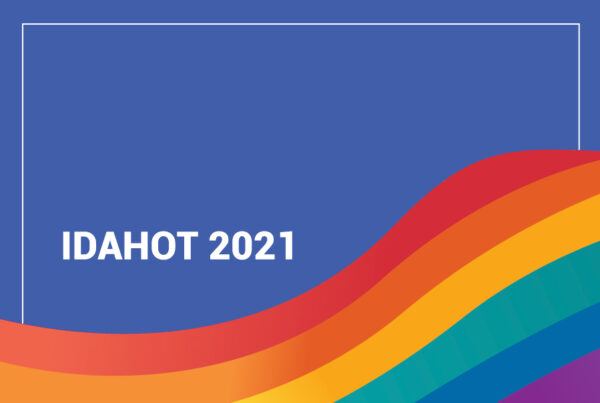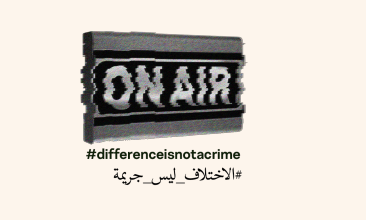On the surface, Lebanon may seem like a rather open place to LGBTI communities. Especially when compared to other Arab cities, Beirut appears like a haven to homosexuals in the region. It boasts openly gay bars and clubs and many of its LGBTI citizens live a fairly open life in pockets of acceptance.
But once you scratch this veneer of tolerance and liberalism, the reality becomes much more complex. Speaking about gay rights in broad terms can be misleading.
“It really depends on the social class and the geographical location, whether we are in Beirut or out of Beirut,” said Genwa Samhat, the director of Helem, the first above-ground LGBTI rights group in Lebanon which has been operating for over ten years.
In general, LGBTI individuals from lower classes face a lot more difficulties with authorities and their social circles. They are more vulnerable to police arrests in this rather classist system.
The most susceptible group remains transsexual individuals. Because of their more obvious appearance as non-gender conforming, they are victims to harassment and intolerance by society, said Samhat.
Trans people are also more likely to be stopped by the police on the streets. In Lebanon, people suspected of homosexuality are mainly apprehended in public places because of a “suspicious” appearance or behavior.
“Being arrested over suspicions of homosexuality can stop or dramatically transform someone’s life,” said Samhat.
It is seldom that LGBTI individuals are caught in the act. A more typical scenario is that policemen search the mobile phones of a suspected individual and find photos or chats that indicate the person’s sexual orientation. This approach is illegal, according to Samhat, who stresses that security officials can only have access to personal belongings, like a mobile phone, following a warrant from the judiciary.
The string of unlawful steps then continues in police stations. Suspects, often unaware of their right for legal assistance, are subject to psychological and physical ill treatment.
“Interrogators threaten to tell their parents. They resort to beatings, insults and blackmail,” said Samhat adding that Helem has issued a report in May documenting violations committed against LGBTI individuals by law enforcement agents.
The aim behind these forms of intimidation is to extract a confession to be able to refer the case to the judiciary. In Lebanon, homosexual practices remains unlawful even if the law is vaguely worded. Article 534 of the Lebanese Penal Code, which dates back to the 1940s, states that, “any sexual intercourse contrary to the order of nature is punished by imprisonment for up to one year.”
Last year, a raid on a sauna in Beirut led to the arrest of tens of individuals who were accused of homosexuality and prostitution. Helem has recorded important violations associated with the arrests and interrogations, including torture, in their report titled, “Hammam Agha Raid: a raid from another era”. The trials, which involve both Lebanese nationals and Syrian refugees, are still ongoing.
Even if changing laws might seem today like an unattainable goal, the LGBTI community in Lebanon has also made significant gains in recent years.
Many media organizations today defend LGBTI rights in their reports. The use of the non-offensive word “mithlee” in Arabic for homosexual, as opposed to “pervert”, has become widespread in society.
In two landmark cases, progressive rulings by the judiciary concluded that nature and natural behaviors are complex notions that cannot be defined in a way to criminalize homosexuality.
Also, a large campaign by civil rights groups against “anal tests”, pseudoscientific practices allegedly determining the occurrence of sodomy, led the Ministry of Justice and the Order of Physicians in Beirut to prohibit them in 2012.
Samhat said, however, that these tests, akin to a form of rape, are believed to be still practiced in secret in some police stations by doctors. But she added that the organization does not have much information in this regard.
It is very difficult to report the number of people arrested in Lebanon and tried on the base of their sexuality. Organizations like Helem do not have access to official records pertaining to such cases and many arrested gay people prefer to remain silent because they fear social stigma.
As for online security, there is a fair degree of freedom of expression in Lebanon when it comes to posting LGBTI-related content on social media. Nevertheless, admitting one’s sexual orientation online can be potentially used against him or her by authorities.
As for dating applications on mobile phones, Samhat said that applications like Scruff and Grindr are relatively safe.
It remains wise, however, to delete regularly compromising photos and chatting history in case of an unexpected mobile phone search by authorities.
The main issue with dating apps remains, though, blackmail.
“We have seen cases of people blackmailed for 8 or 9 years. They pay a monthly fee to their extorters to keep them silent,” she said.
Helem councils LGBTI individuals to remain vigilant while chatting with strangers and refrain from sending photos and videos that can be considered by authorities as “against public morals” and thus used against them.
Samhat stressed that in cases of blackmail, the best action is not to respond to the demands of extorters no matter what they say.
Online campaigning is a big part of Helem’s work. The group is in the process of launching a public safety awareness campaign through social media to attract attention over STDs and prevention methods. This follows ten years of prevention work on the ground through mobile c
linics that circle cruising areas to distribute condoms and carry out on-the-spot tests for HIV and hepatitis.
The next big challenge for Helem is to spread their activities beyond Beirut. Samhat said that the organization is starting campaigns in more conservative areas where LGBTI individuals are less aware of their rights.





